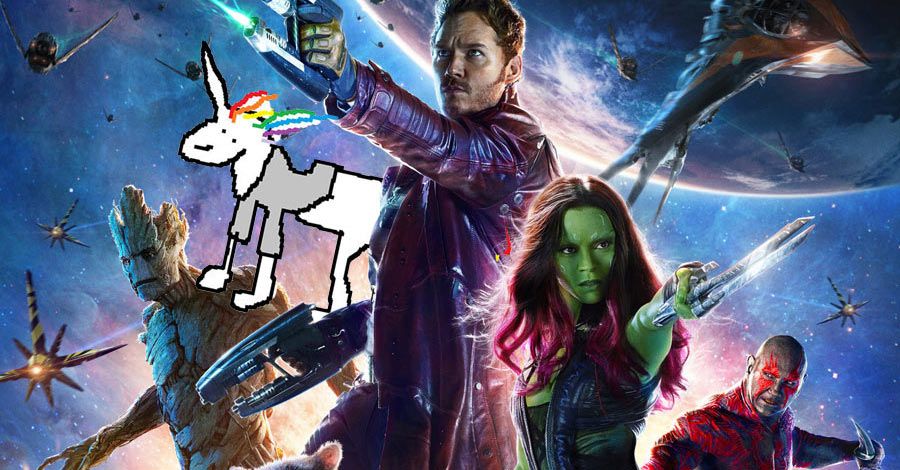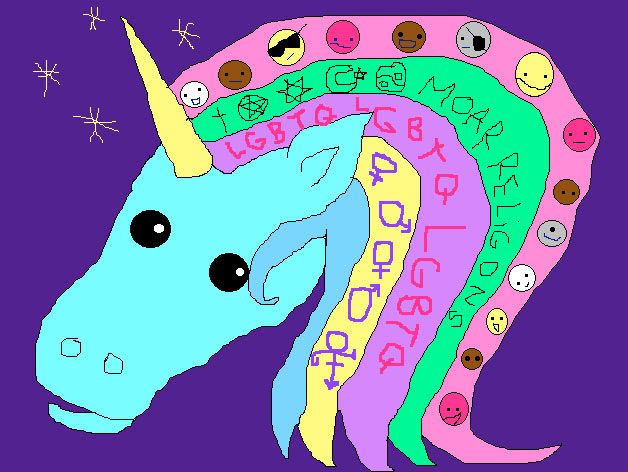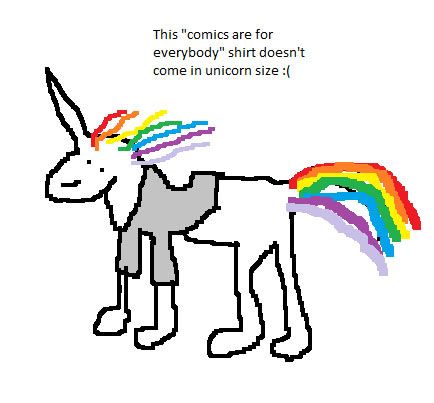I've never fully subscribed to the "don't read the comments" philosophy. At its root, it seems a little arrogant -- yes, a lot of comments across the Internet are unflinchingly terrible, to the "lose faith in humanity" degree. But there are a lot of smart people out there, and it's at least possible that you may find yourself opening up to a different way of thinking, or discovering something you didn't know before. (Or find out that you spelled the name of a fictional alien race wrong. That's useful, too.)
Let's back up: Last week, I wrote CBR's review of Marvel Studios' latest film, "Guardians of the Galaxy." It was such an over-the-top positive piece that I actually felt a little self-conscious about it. It was the type of review that the cynical among us would derisively call it "breathless" due to its unyielding praise. But I really liked the movie, and I wasn't going to invent problems with it that I didn't actually have.
One minor shred of negativity among my onslaught of verbal sunshine came in this passage, about halfway through: "While it is a little disappointing that a movie with such an eclectic cast still has a handsome white male as its lead, it's hard to take issue with [Chris] Pratt's actual performance." (Full disclosure: the original version of the review said "white guy," and I quickly decided that didn't sound quite right and meant to change it before publication, forgot to, and did so soon afterwards.) As you can see, only the first half of that sentence is actually a criticism, and the rest of the paragraph proceeded to rain down well-deserved praise on Pratt for his absurdly joyful performance as Peter Quill. And it was meant exactly how it was written: It is a little disappointing. Not a major criticism, just on an instinctual level, a little disappointing.
The comment did not go unnoticed. On our Facebook page, a reader wrote: "Why is that disappointing? Star-Lord is white. It's that simple. And he's the only 'white guy' on a very diverse team of aliens. So, while I get that CBR feels the need to stroke the mane of the diversity unicorn to appease...someone...that statement seemed completely out of left field." The comment garnered 45 Likes, and scattered similar reactions trickled in across a variety of platforms, though none quite so delightfully worded. The next morning, CBR received an email that put it even more plainly: "The racism towards white males in Albert Ching's review of 'Guardians of the Galaxy' is unacceptable and I ask that it be removed from the article." (There's something about the juxtaposition of the severity of that charge and the title "Guardians of the Galaxy" that really makes that email sing.)
Still though, I couldn't get the idea of "stroking the mane of The Diversity Unicorn" out of my head. While the comment was meant to disagree with my point and criticize Comic Book Resources as an entity, I genuinely thought it was a phenomenal turn of phrase, and it even inspired fan art from CBR contributors Casey Gilly and Steve Morris. It's just a fun idea. But I also thought of the content of that comment, and its ilk: In what way is Star-Lord, out of all the mainstream superheroes, inextricably linked to his race? Is there something I'm missing in Star-Lord's history that makes changing his ethnicity -- not his personality -- off-limits?
When Donald Glover expressed his desire to play Spider-Man a few years back, the mere suggestion of a black Peter Parker (which never appeared close to actually happening) sparked a good bit of an outrage. And though I didn't agree with the backlash, I sort of understood why it happened. Spider-Man -- especially at that pre-Miles Morales point -- was a character that was very well-defined, and had been for decades. While I still think Glover could have been an awesome Spider-Man, and that there's absolutely no reason Peter Parker can't be African-American, I understand that any change to a character that storied will be met with skepticism (I've lived through the "organic webshooter" wars, after all).
But Star-Lord? He's only appeared in a relative handful of comics since being introduced by Steve Englehart and Steve Gan in 1976. While there are certainly some key elements that make up his character -- a half-human, half-alien rogue adventurer with a heart of gold, more at home in space than on Earth -- "being white," as far as I can tell, isn't one of them. It's not like there isn't precedent for comic book characters shifting race in other media adaptations, dating back to Billy Dee Williams playing Harvey Dent in 1989's "Batman" and as recently as Susan Heyward's casting as Deena Pilgrim in the upcoming "Powers" TV series. Next year's "Fantastic Four" reboot sees Michael B. Jordan as the Human Torch, an attention-getting move that attempts to course-correct how overwhelmingly white much of the Golden and Silver Age of comics were. Obviously race is an important thing and shouldn't be simply glossed over, but looking at my back issues, I'm having a hard time finding a Star-Lord story that would be in any way diminished if he were a different race.
It's important to give credit where it's due: Overall, "Guardians of the Galaxy" has the most ethnically diverse cast of a Marvel movie yet. Of the main five protagonists, Zoe Saldana (Gamora) is Dominican and Puerto Rican, and Dave Bautista (Drax) is half-Filipino. Of course, they're both playing aliens with inhuman skin colors (as is, to be fair, Michael Rooker as Yondu). It would be hypocritical to complain, since it's still progress and Marvel could have easily cast white actors in the roles, but there's something that, again, somehow feels a little disappointing about that, especially given how unconventional "Guardians" is as a whole. (Also a little disappointing: An actor of the caliber of two-time Academy Award nominee Djimon Hounsou being cast in a minor henchman role.)
None of this is meant to say that Marvel Studios in any way failed with "Guardians of the Galaxy." Chris Pratt was fantastic and is undoubtedly a non-traditional lead, and the more diverse cast (let's not forget Benicio del Toro as The Collector) is absolutely encouraging. The movie is an unqualified blast. It's more the overall pattern: Ten movies into the Marvel Studios canon, and every one of them has had a white male in the lead, even the one with the talking raccoon and tree monster. This doesn't look to be changing anytime soon: Of the four major new additions in "Avengers: Age of Ultron," all are white and three are males (James Spader, Paul Bettany, Aaron Taylor-Johnson) with only one female (Elizabeth Olsen) known to be joining the franchise in a significant role. Then we've got "Ant-Man," with two white males (Paul Rudd and Michael Douglas) at its center, then the not-officially-scheduled "Doctor Strange" -- which could still surprise, though all rumored frontrunners for the title role (Joaquin Phoenix, Jared Leto) are white males.
But the real issue raised by invoking "The Diversity Unicorn" is that I should somehow feel embarrassed to be thinking about this stuff. After all, superhero movies are supposed to be fun, right?
Much has been made about the idea that mainstream comic books are driving all of pop culture -- and they are. Superhero movies might seem silly and airy, but they're extremely powerful. They have an impact on a whole lot of people (look at "Guardians'" $94 million opening weekend for the latest proof). Given that, we have the obligation to take them just as seriously as any other significant force in our culture. We have to talk about this stuff -- be it diversity, gender politics, social commentary or any of the other larger issues these works may raise. It's not a distraction or a digression, it's a bare minimum expectation -- and just as much of a relevant and necessary of a conversation for fans to be having as wondering when we'll finally see "The Infinity Gauntlet" on the big screen.
The idea that the only reason to have these discussion is to "appease" some nebulous entity reduces the importance of these matters to a false "us vs. them" mentality. There's nothing inherently political about wanting to see positive, diverse representation in popular entertainment, be it movies, television, video games or the comic books themselves that so much of them are based on. It's life. It's reality. It doesn't have a left or right wing bias. I don't want to see minorities in a superhero movie because I'm a minority; I want to see it because I live in society. Much like Peter Quill's reason for wanting to save the galaxy -- because he's one of the idiots who lives in it -- it benefits everybody.
So by all means: Chase that Diversity Unicorn, and gently stroke its noble mane until we see the kind of representation in superhero movies that all fans deserve.



